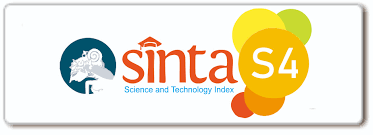Mengembangkan Strategi Pembelajaran Bahasa Inggris Yang Kreatif
Agung Prihantoro
DOI:
https://doi.org/10.47200/ulumuddin.v8i1.173Keywords:
development, learning, english language.Abstract
The main problem of students in Indonesia in learning English as a second languages is that they have been learning English since they studied in the basic schools but they cannot communicate (read, write, speak, listen [RWSL]) in English well as some researches show it. The problem is concerned with teaching and learning components that are students, teachers, curriculum, learning material, teaching and learning activity, classrooms, and learning tools. The article focuses on learning material and teaching and learning activity that should drive studentsaat higher education able to communicate in English well. The learning material includes knowledge, skills and expertise, values, and attitudes and behaviors. The teaching and learning activity contains (1) paradigm shift from instruction paradigm to learning paradigm and (2) communicative learning strategy.









